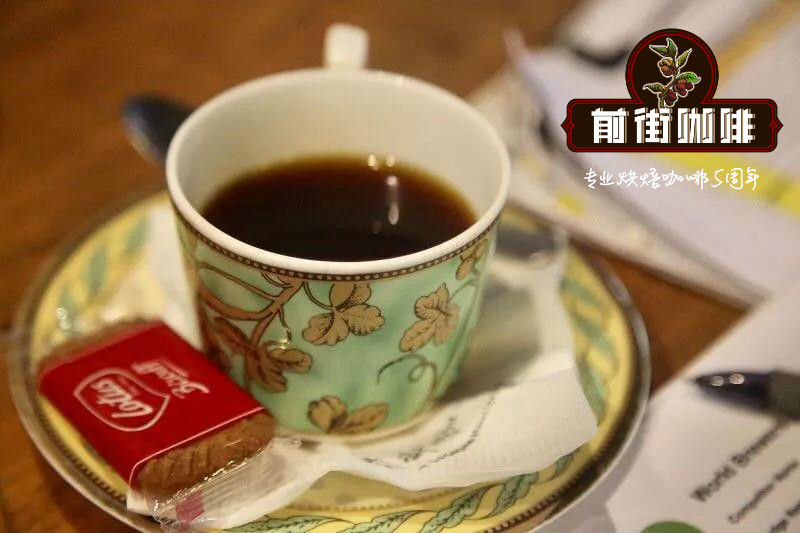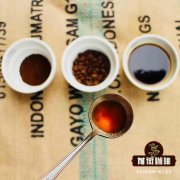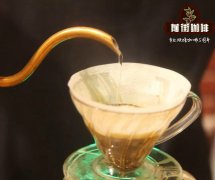Why is organic coffee more expensive than regular coffee?

Professional coffee knowledge exchange more coffee bean information please follow the coffee workshop (Wechat official account cafe_style)
In many parts of the world, growers use pesticides to control the growth of coffee pests, and moist and foggy coffee at high altitudes are more vulnerable to pests, so growers often use pesticides to treat them. Organic coffee is grown without any insecticides and other chemicals, but uses natural methods such as natural composting, hedgerows and pruning to maintain the growth of coffee trees to ensure the health of coffee trees. These ways of growing coffee are conducive to maintaining a healthy environment and keeping the groundwater pure. Of course, can all the coffee beans produced by coffee trees without chemical pesticides be called inorganic coffee beans? In fact, organic coffee beans can only be called organic coffee beans if they are certified by a third party (except coffee producers and buyers).
Only a small part of the world's coffee is truly organic certified coffee, because the certification process takes a long time, about three years. And such a deal could reduce coffee production by as much as 50%. So when coffee growers decide to do organic certification, it means that a time-consuming and costly investment begins.
The growth of organic coffee has a great impact on biodiversity and forest ecosystem protection, prevention of water pollution, soil quality and prevention of soil erosion. Because trees need good organic systems, large organic planting areas have created their own microclimate, which helps to reduce the impact of global warming and improve water resources management. Organic production ensures that no chemicals enter the coffee, and richer soil creates better tastes and healthier products.
Organic coffee is grown to create jobs in most countries where there are fewer jobs. It creates more jobs throughout the year and makes employment more stable. It allows people to maintain small land and provide them with their own houses, food, construction and heating materials (wood) in a healthy environment. All this contributes to the creation of stable small rural communities. Learn why organic coffee cultivation is such a great idea and why it should eventually give you a better experience.
Compared with the usual planting mode, the yield of organic coffee is reduced by more than 50%. Organic coffee uses coffee beans planted in the shade, although the yield is not high, but its quality can reach the level of gourmet coffee. After the coffee is harvested, the coffee beans must be processed in an organically certified roaster. After professional roasting, there will be less caffeine left in the coffee, and other active ingredients in the coffee will be efficiently preserved. Therefore, organic coffee is healthier and more environmentally friendly than ordinary coffee.
Standard organic coffee is usually grown in shade (shade planting), which promotes the quality of forest conservation; enhances the disease resistance of the natural environment, reduces soil erosion and maintains a healthy ecosystem; enables birds to develop a mutually beneficial relationship with coffee farms, enjoy their habitats, while maintaining insect control and naturally fertilizing the soil. The high-quality coffee produced in harmony with nature is of great benefit to health and environmental protection.
END
Important Notice :
前街咖啡 FrontStreet Coffee has moved to new addredd:
FrontStreet Coffee Address: 315,Donghua East Road,GuangZhou
Tel:020 38364473
- Prev

The truth about decaffeinated coffee is that decaffeinated coffee is really better than decaffeinated coffee.
Professional coffee knowledge exchange more information about coffee beans Please follow the coffee workshop (Wechat official account cafe_style) many people drink decaffeinated coffee to avoid sleepless nights. But is decaffeinated coffee really decaffeinated? What's the difference between decaffeinated and natural decaffeinated? Is it safe for chemicals to remove caffeine from coffee? The first thing you need to know is decaf.
- Next

Why do baristas have to grind every day? Standard for grinding scale of coffee grinders
Information Please pay attention to coffee workshop (Weixin Official Accounts cafe_style) freshness is the first requirement of good coffee, the second important thing is to master the grinding thickness of coffee beans, which directly affects the extraction effect, that is, the quality and intensity of coffee flavor. In principle, the finer the coffee powder, the longer the brewing time, the stronger the coffee taste; conversely, the coarser the coffee powder, the shorter the brewing time, the lighter the taste
Related
- Beginners will see the "Coffee pull flower" guide!
- What is the difference between ice blog purified milk and ordinary milk coffee?
- Why is the Philippines the largest producer of crops in Liberia?
- For coffee extraction, should the fine powder be retained?
- How does extracted espresso fill pressed powder? How much strength does it take to press the powder?
- How to make jasmine cold extract coffee? Is the jasmine + latte good?
- Will this little toy really make the coffee taste better? How does Lily Drip affect coffee extraction?
- Will the action of slapping the filter cup also affect coffee extraction?
- What's the difference between powder-to-water ratio and powder-to-liquid ratio?
- What is the Ethiopian local species? What does it have to do with Heirloom native species?

